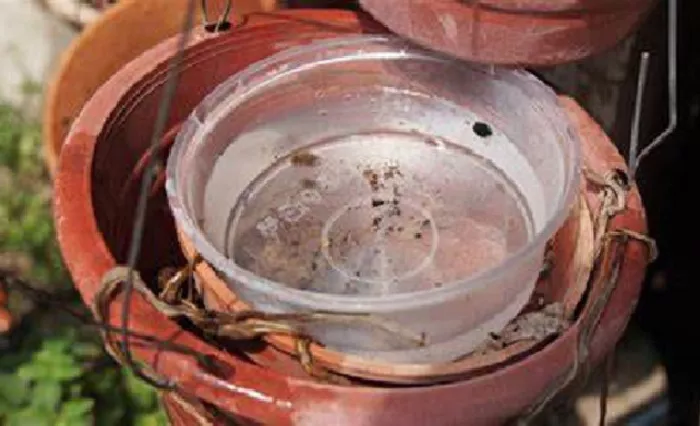As the warm months approach, our gardens come alive with vibrant blooms and lush foliage. However, this season also brings an unwelcome guest—mosquitoes. These tiny pests are not just annoying; they can pose health risks by breeding in stagnant water found in flower pots. In this article, we will explore practical and effective ways to keep your garden beautiful and mosquito-free.
Understanding Mosquito Breeding Habits
Mosquitoes are attracted to standing water, which serves as an ideal environment for laying their eggs. Flower pots, with their saucers and drainage holes, can easily become breeding grounds if not properly maintained. Understanding the life cycle of mosquitoes is crucial in preventing their proliferation. Female mosquitoes lay their eggs in stagnant water, and within days, these eggs hatch into larvae. The larvae then develop into pupae before emerging as adult mosquitoes. By disrupting this cycle, we can significantly reduce the mosquito population in our gardens.
Identifying Potential Breeding Sites
Before we delve into prevention strategies, it’s essential to identify common areas in and around flower pots where mosquitoes might breed. Saucers that collect water, drainage holes that trap moisture, and even the soil itself can harbor mosquito eggs. Additionally, any decorative elements such as birdbaths or small water features can also become breeding sites if the water is not regularly changed.
Effective Strategies for Prevention
Preventing mosquitoes from breeding in flower pots requires a combination of proactive measures and regular maintenance. Here are some practical steps you can take to keep your garden mosquito-free.
Regularly Empty and Clean Saucers
One of the simplest yet most effective ways to prevent mosquito breeding is to regularly empty and clean the saucers under your flower pots. Mosquitoes are attracted to standing water, and saucers that collect rainwater or excess irrigation water provide an ideal environment for them to lay eggs. By emptying the saucers at least once a week and scrubbing them with a brush to remove any mosquito eggs or larvae, you can significantly reduce the chances of mosquitoes breeding in your garden.
Proper Drainage Management
Ensuring proper drainage in your flower pots is another crucial step in preventing mosquito breeding. Clogged drainage holes can trap water, creating stagnant pools that attract mosquitoes. To avoid this, regularly inspect the drainage holes of your pots and remove any debris or soil that might be blocking them. You can also elevate your flower pots slightly using pot feet or bricks to improve airflow and prevent water from pooling at the base.
Using Mosquito Dunks or Pellets
For flower pots that are prone to retaining water, using mosquito dunks or pellets can be an effective solution. These products contain a natural bacteria called Bacillus thuringiensis israelensis (BTI), which is toxic to mosquito larvae but safe for plants and other wildlife. Simply place a dunk or pellet in the water-filled saucer or directly into the soil of your flower pot. The BTI will kill any mosquito larvae that hatch, preventing them from developing into adult mosquitoes.
Natural Repellents and Barriers
In addition to eliminating breeding sites, you can also use natural repellents and barriers to keep mosquitoes away from your flower pots. Certain plants, such as citronella, lavender, and marigolds, are known for their mosquito-repelling properties. Planting these around your garden or placing them near flower pots can help deter mosquitoes from laying eggs. You can also use essential oils like lemon eucalyptus or peppermint oil as natural repellents. Mix a few drops of the essential oil with water in a spray bottle and mist the area around your flower pots to create a barrier that mosquitoes will avoid.
Maintaining Healthy Soil
Healthy soil is not only beneficial for your plants but also helps in preventing mosquito breeding. Overwatering can lead to waterlogged soil, which creates a damp environment that mosquitoes find appealing. To maintain healthy soil, ensure that you are watering your plants appropriately based on their needs. Use well-draining soil mixes and avoid letting water sit on the surface of the soil for extended periods. Adding a layer of mulch can also help regulate soil moisture and prevent the soil from becoming too damp.
Additional Tips for a Mosquito-Free Garden
While the above strategies focus specifically on preventing mosquito breeding in flower pots, there are additional measures you can take to create a mosquito-free garden overall.
Regular Garden Maintenance
Regularly inspecting your garden for any potential mosquito breeding sites is essential. Remove any standing water from containers, gutters, or other areas where water might collect. Trim back overgrown vegetation, as mosquitoes tend to hide in dense foliage during the day. Keeping your garden tidy and well-maintained will make it less attractive to mosquitoes.
Using Physical Barriers
If you have a particularly mosquito-prone area in your garden, consider using physical barriers to protect your plants and yourself. Mosquito nets can be placed over outdoor seating areas or around potted plants to create a barrier that prevents mosquitoes from reaching the plants or people. You can also use screens on windows and doors to keep mosquitoes out of your home.
Encouraging Natural Predators
Nature has its own way of controlling mosquito populations through predators. Birds, bats, and certain insects like dragonflies and spiders are natural mosquito predators. By creating a garden environment that attracts these predators, you can help keep mosquito numbers in check. Installing birdhouses, bat boxes, or creating habitats for beneficial insects can be an effective and eco-friendly way to reduce mosquito breeding in your garden.
Conclusion
Preventing mosquitoes from breeding in flower pots is essential for maintaining a beautiful and healthy garden. By understanding mosquito breeding habits, identifying potential breeding sites, and implementing effective prevention strategies, you can enjoy a mosquito-free outdoor space. Regular maintenance, proper drainage management, and the use of natural repellents and predators are all key to keeping your garden vibrant and pest-free. With a little effort and attention, you can create a garden that is both stunning and free from the nuisance of mosquitoes.


